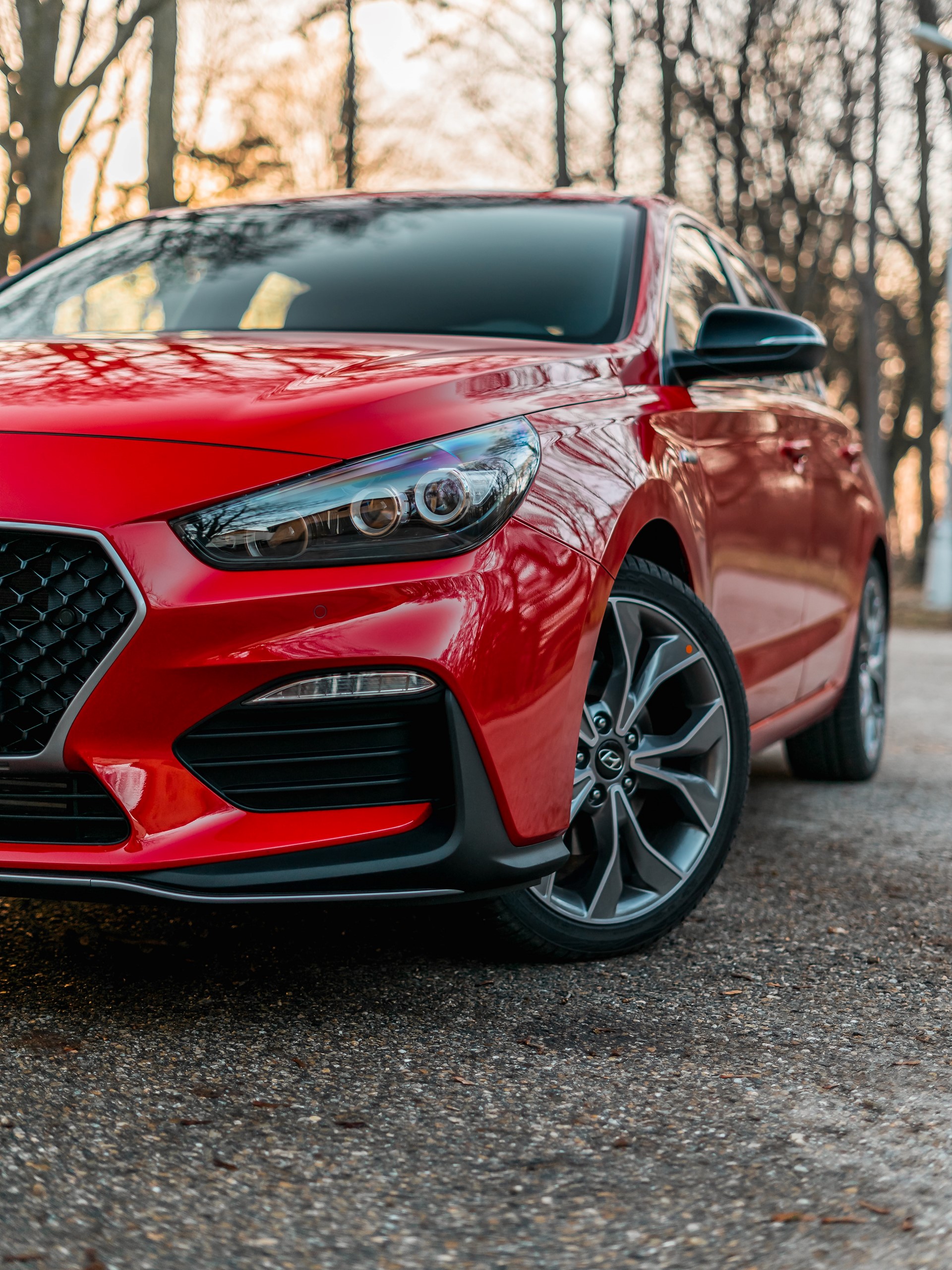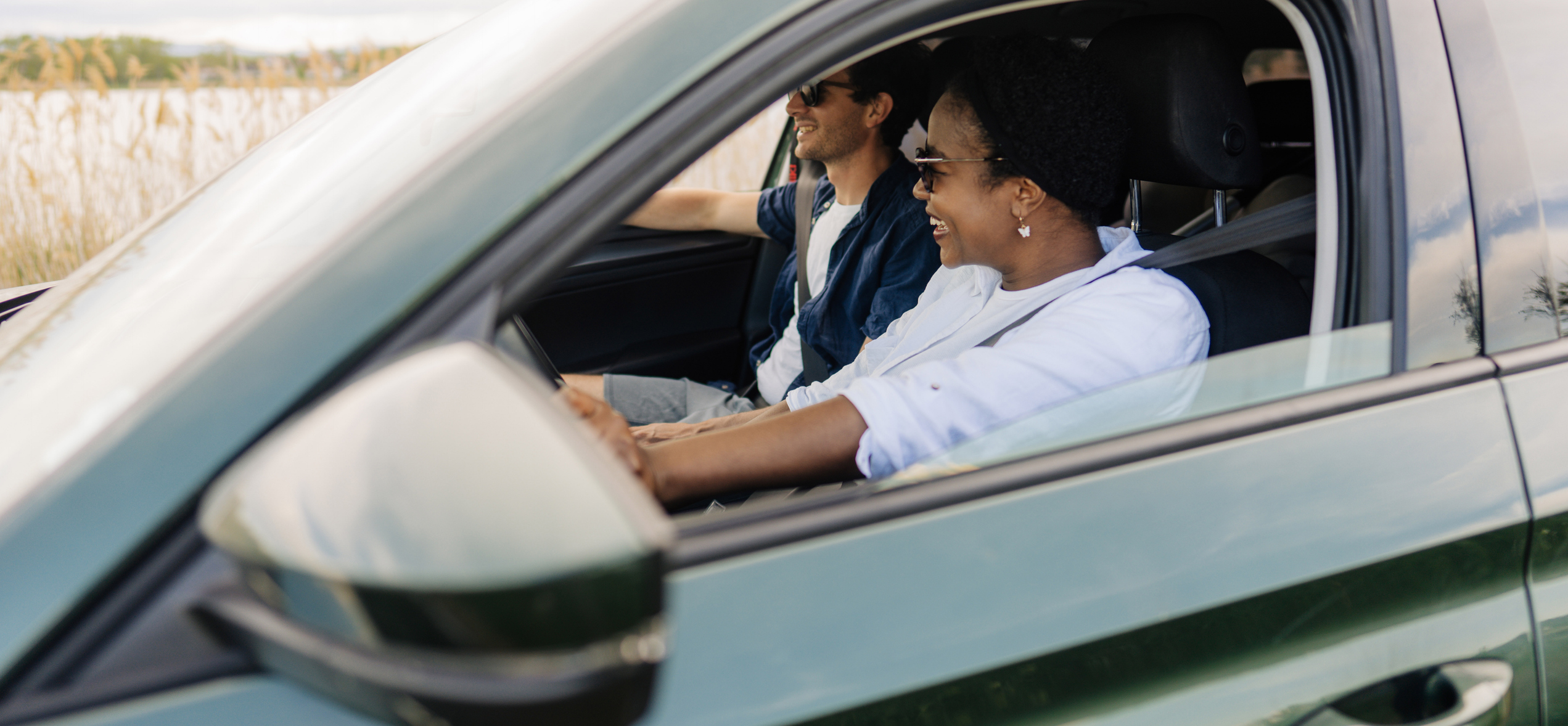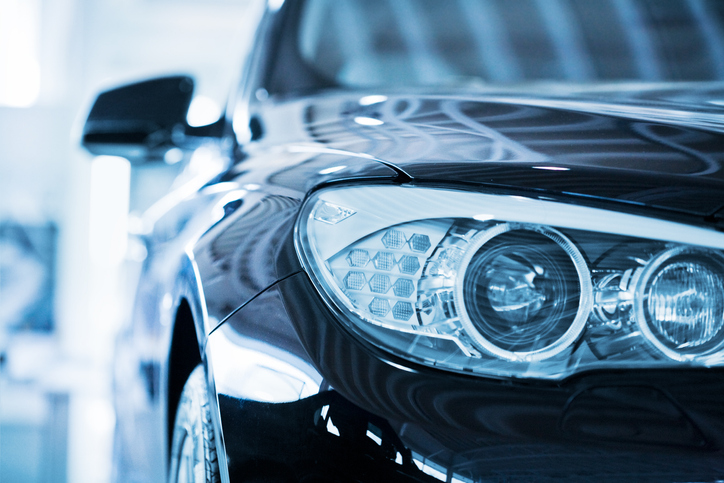Buying a used car
Written by
Friday 18th October 2024
Last updated: 6th February 2025

Read my essential guide to find out whether now’s a good time to buy a second-hand car, where to look for it, how to finance one, plus top buying tips.
All is not lost if your budget can't quite stretch to a brand new car. The second-hand car market is thriving and there's plenty of choice at affordable prices.
You'll not be alone either - around seven million used cars change hands in the UK every year, which is more than three times the number of new cars registered annually.
Is it a good time to buy a used car?
In a word - yes. I run three cars and generally sell and replace at least one of them every year, so I keep a keen eye on used car prices.
The second-hand market has been strong since COVID, when a global shortage of new cars increased demand for used cars.
Since then, the cost-of-living crisis has meant that many motorists have held on to their cars for longer and some have delayed new-car purchases, meaning that good used vehicles are still selling at a premium.
Industry experts expect the situation to stay much the same over the coming months. However, winter is traditionally one of the best times to buy second-hand, because it's quieter so dealers and private sellers have to work harder to sell cars.
And if you're looking to make the switch to an electric car, there's never been a better time to buy a used EV.
"New EVs are commonly more expensive than the closest petrol and diesel equivalents, however, used EV values have fallen sharply in the past two years, resulting in some models now looking extremely good value for money," explained Chris Plumb of cap hpi, the used vehicle checking service for car buyers.
Although demand for EVs and hybrids in the UK has increased year on year over the last four years, the rate is slower than expected leading some manufacturers to reduce the cost of new EVs. Inevitably, the knock-on effect of discounts for new EVs is that the price of used electric cars becomes more competitive too.
If you're in the market to buy a used electric car, it's possible to buy them for as little as £3,000 (for a first-generation Nissan Leaf with a runabout range).
However, I'd recommend spending at least £10,000 on an EV, such as a Vauxhall Corsa-e, Hyundai Ioniq, BMW i3, Peugeot e-208 or Nissan Leaf (second generation), with ranges near the 200-mile mark.
And if you need a longer range closer to 250 miles, then around £15,000 gives you access to the Kia Niro, Volkswagen ID.3, MG5 and Kia Soul.
It’s worth noting that the new UK Government has pledged to reinstate the original 2030 ban on the sale of new petrol and diesel vehicles in the UK. The ban only applies to the sale of new vehicles, so you will still be able to purchase and sell used petrol, diesel and hybrid cars after this date.
It's possible that many ICE owners will hold onto their cars for as long as possible in the run up to 2030 and beyond, but it's unlikely that these vehicles will rise in value because EVs are becoming more accessible and affordable. So now could be the right time to make the transition.
If you want one good reason to make the switch and bag yourself a bargain on a used EV, just compare the maintenance costs between an electric vehicle and a traditional ICE vehicle.
Since EVs have around 90% fewer moving parts than their ICE counterparts, there is a much smaller chance of things going wrong with an EV, making maintenance costs considerably cheaper in the long run.
In fact, the average cost of servicing an electric car works out 45% cheaper than diesel and 38% cheaper than petrol models.
What's more, running ICE cars may become more expensive as the years tick by as more towns and cities start ULEZ (Ultra Low Emission Zones) schemes and taxes for polluting vehicles rise further. It’s also possible that petrol and diesel may become more expensive – or even scarce. This could all fuel a rise in demand for EVs – including second-hand models - in the future.
Where to search for a second-hand car
There are plenty of ways to find used cars for sale, whether it's visiting showrooms and forecourts, searching online, or bidding at an auction.
You can find a mixture of trade and private adverts on Auto Trader, or dealers-only on sites such as Motors, RAC Cars and Cinch.
Private car ads can be found on websites such as Gumtree, Pistonheads and Facebook Marketplace. eBay is the best-known online auction site, but you might also find a car auction house open to the public in your local area.
Ultimately, the deciding factor may be peace of mind. You're more likely to find a bargain if you buy privately or at auction, but you'll have more consumer protection if you buy your car from a dealer, because you’ll be covered by the Consumer Right Act 2015 This states that goods must be ‘of a satisfactory quality’, ‘fit for purpose’ and ‘as described’.
However, if you buy privately, protection is limited. The seller must have the right to sell it, which means it’s not stolen or subject to finance, and it must be roadworthy, but other than that it's largely a case of 'buyer beware'.
Citizens Advice has a handy online tool for checking your consumer rights when buying a used car.
How to finance your next car
Saving up to buy a used car outright is the simplest way to get on the road.
If you’re buying from a dealership or a private seller, but can't afford the upfront cost, you could apply for a car loan from a personal loans provider to help you pay for your vehicle.
Those going to a dealer may also be able to access car finance options such as PCP (Personal Contract Purchase), or HP (Hire Purchase).
Car finance schemes such as PCP and HP may seem like a good deal from a monthly payment perspective but remember - you're not paying off the full value of the car, you're essentially hiring your car for the duration of the term, though PCP will give you the option to buy your car at the end of the agreement.
My top used car buying tips
1. Stick to a budget
Be realistic about your budget. Over-extending yourself can leave you exposed particularly if you have little or no savings, or your income drops unexpectedly. As well as the cost of the car, it's essential to factor in other expenses, including insurance, road tax, maintenance and servicing, plus everyday running costs such as fuel or charging.
2. Take advice
If you haven't already decided which car to search for, ask family, friends and colleagues for recommendations. Once you've made up your mind, target that model and do your research by reading long-term reviews from motoring websites, feedback from genuine owners, and checking reliability rankings.
3. Don't go it alone
Take along a knowledgeable friend or relative when you view and test drive a car. Carry out a thorough exterior and interior visual inspection of the vehicle (look for signs of rust, damage and leaks), check the tyres, test all the electrical items, and make sure there are no dashboard warning lights illuminated. You can also book a professional vehicle inspector (try the AA and RAC) who will give you a full report. If the seller won't agree to one, then walk away because they’re probably trying to hide something.
4. Background checks
You can view a car’s previous MOTs and find out if it failed any and why, plus trace its mileage history, for free at GOV.co.uk. MOTs can also indicate whether a car is troublesome, or suffers from rust issues, for instance. If you're still interested, then buy an HPI Check online, or a similar vehicle history check from another provider, for peace of mind. It will tell you if the car has any outstanding finance, or has previously been stolen or written off by an insurer.
5. EV battery degradation
Buying a used electric car is much the same as choosing a petrol or diesel vehicle. However, the most important part of an EV is the battery and it’s vital that you know its condition. The average electric vehicle battery degradation rate has continued to improve over the last five years, now sitting at just 1.8% per year, which means that in 20 years an EV battery would still charge to 64%, meaning the battery will likely comfortably outlast the usable life of the vehicle itself!
It’s also worth obtaining a State of Health (SoH) report to give you peace of mind. This shows the battery's current capacity compared to its original state as a percentage. If it’s not available, look in the infotainment system yourself, or get a qualified technician to assess the battery status using a specialist diagnostic tool.
6. Buyer beware
“If the price is too good to be true, it probably is" – that’s the golden rule when buying a used car. It is still possible to bag a bargain, but if a car is ridiculously cheap, there’s likely to be something wrong with it or the seller is not to be trusted.
Written by
Gareth Herincx is an experienced journalist who has worked across the media in newspapers, magazines, TV, teletext, radio and online for household names including the BBC, GMTV and ITV. Specialising in motoring since 2013, his articles have appeared on the Yahoo, MSN, Admiral Insurance and HELLO! websites.
Sources
SMMT
https://www.smmt.co.uk/2024/01/new-car-market-delivers-best-year-since-2019-as-fleets-fuel-growth/
https://www.smmt.co.uk/2024/02/used-car-market-up-as-ev-sales-reach-record-levels/
GOV.co.uk
https://www.gov.uk/check-mot-history
cap hpi
Citizens Advice
https://www.citizensadvice.org.uk/consumer/buying-or-repairing-a-car/problems-with-a-used-car/






